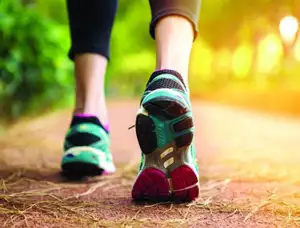Learn about physical exercise benefits in this lesson on reading practice in English with vocabulary in real or authentic context. Watch the embedded video and listen to any word or phrase by selecting the text. Physical exercise benefits People exercise to keep healthy. They exercise to lose weight or to stay fit. They exercise to make their muscles bigger and stronger. Maybe you play soccer or some other sport for exercise. Getting exercise can be fun and can make you feel good. Exercise is a big part of staying physically fit. People who are physically fit are alert and full ...
Home » English for Young Learners » Physical Exercise Benefits – Reading Practice

Physical Exercise Benefits – Reading Practice
Updated: by Dr. Mohammad Hossein Hariri Asl
Time to Read: 6 minutes | 382 Views | 2 Comments on Physical Exercise Benefits – Reading Practice
Share This Post
About the Author
Dr. Mohammad Hossein Hariri Asl is an English and Persian instructor, educator, researcher, inventor, published author, blogger, SEO expert, website developer, entrepreneur, and the creator of LELB Society. He's got a PhD in TEFL (Teaching English as a Foreign Language).
Number of Posts: 4242



Hi Doctor.
I have a question:
What is the difference between( weigh) and ( weight) as verb?
Hi.
Weigh is always a verb and it means to have a particular weight (noun).
However, weight is both a noun and a verb. The central function of ‘weight’ is noun, though. Examples:
* How much do you weigh? (verb)
* The average weight of babies at birth is around 3 kilograms. (noun)
‘Weight’ can be used as a verb, too, which is really uncommon and it only appears as a phrasal verb, e.g. weight down, which means to twist or distort something to make it more suitable.